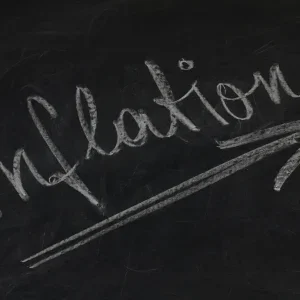
The hotel industry, a critical component of the global tourism sector, is currently grappling with the challenges posed by inflation. Inflation affects various aspects of the industry, from operational costs to pricing strategies, and has significant implications for profitability and sustainability. This article delves into the impact of inflation on the hotel industry, examines related economic factors, and explores strategies that hoteliers can employ to mitigate these challenges.
Understanding Inflation and Its Impact on the Hotel Industry
Inflation refers to the general increase in prices and the corresponding decline in the purchasing power of money. It is measured by indices such as the Consumer Price Index (CPI) and the Producer Price Index (PPI). For the hotel industry, inflation can manifest in several ways:
- Increased Operational Costs: Rising prices of goods and services directly affect the cost of running a hotel. This includes higher expenses for utilities, food and beverages, cleaning supplies, and maintenance services. Labour costs also rise as employees demand higher wages to keep up with the cost of living.
- Higher Construction and Renovation Costs: Inflation impacts the costs associated with construction, renovation, and refurbishment of hotel properties. The prices of raw materials such as steel, concrete, and lumber can surge, making it more expensive to build new hotels or upgrade existing ones.
- Supply Chain Disruptions: Inflation often leads to supply chain disruptions, causing delays and increasing costs for goods and services that hotels rely on. These disruptions can affect everything from kitchen supplies to room amenities, ultimately impacting guest satisfaction.
- Pricing Pressures: To maintain profitability, hotels may need to adjust their pricing strategies in response to inflation. However, significant price increases can deter guests, especially in price-sensitive markets, leading to a potential drop in occupancy rates.
Economic Factors Contributing to Inflation
Several economic factors contribute to inflation, and understanding these can help hoteliers anticipate and respond to changes more effectively:
- Monetary Policy: Central banks, such as the Bank of England or the Federal Reserve, influence inflation through monetary policy. Expansionary policies, including lowering interest rates and increasing money supply, can stimulate demand but may also lead to higher inflation.
- Supply and Demand Dynamics: Inflation can result from an imbalance between supply and demand. For example, post-pandemic economic recovery led to a surge in demand for travel and accommodation, while supply chain disruptions limited the availability of goods and services, pushing prices higher.
- Energy Prices: Fluctuations in energy prices, particularly oil and gas, have a direct impact on inflation. Hotels are energy-intensive operations, and rising energy costs increase operational expenses significantly.
- Global Events: Geopolitical events, natural disasters, and pandemics can disrupt global supply chains and economic stability, leading to inflation. The COVID-19 pandemic is a prime example of how a global event can cause widespread economic disruptions and inflationary pressures.
Strategies for Mitigating Inflationary Pressures in the Hotel Industry
While inflation poses significant challenges, there are several strategies that hoteliers can adopt to mitigate its impact:
- Cost Management and Efficiency Improvements
- Energy Efficiency: Investing in energy-efficient technologies and practices can help reduce utility costs. This includes installing energy-efficient lighting, heating, ventilation, and air conditioning (HVAC) systems, as well as exploring renewable energy sources.
- Operational Efficiency: Streamlining operations through technology and process improvements can lead to cost savings. For example, adopting property management systems (PMS) and automated check-in/check-out processes can enhance efficiency and reduce labour costs.
- Supplier Negotiations: Building strong relationships with suppliers and negotiating long-term contracts can help secure more stable pricing for essential goods and services.
- Revenue Management and Dynamic Pricing
- Dynamic Pricing: Implementing dynamic pricing strategies allows hotels to adjust room rates based on real-time demand and market conditions. This can help maximise revenue during peak periods and maintain competitiveness during slower times.
- Ancillary Revenue Streams: Diversifying revenue streams by offering additional services and amenities, such as spa treatments, dining experiences, and event hosting, can help offset rising operational costs.
- Enhancing the Guest Experience
- Value-Added Services: Focusing on value-added services and personalised experiences can justify higher room rates. Guests are often willing to pay a premium for exceptional service, unique experiences, and high-quality amenities.
- Loyalty Programmes: Strengthening loyalty programmes can encourage repeat business and build a stable customer base. Offering incentives, such as discounts or exclusive perks, can enhance guest loyalty and mitigate the impact of fluctuating demand.
- Strategic Investments and Renovations
- Smart Investments: Prioritising investments in areas that offer the highest return can help manage costs. For example, upgrading rooms or facilities that attract higher-paying guests can lead to increased revenue.
- Deferred Maintenance: While it is important to maintain property standards, strategically deferring non-essential maintenance during high inflation periods can help control expenses.
The Role of Technology in Combating Inflation
Technology plays a pivotal role in helping the hotel industry navigate inflationary pressures. Here are some key technological solutions:
- Property Management Systems (PMS): Advanced PMS can streamline operations, enhance guest service, and improve overall efficiency. Features such as automated inventory management, dynamic pricing, and integrated booking platforms are particularly beneficial.
- Revenue Management Software: Sophisticated revenue management tools use data analytics and machine learning to optimise pricing strategies. These tools can predict demand, adjust rates in real-time, and identify opportunities for revenue enhancement.
- Energy Management Systems (EMS): Implementing EMS can lead to significant energy savings. These systems monitor and control energy usage, identify inefficiencies, and provide actionable insights to reduce consumption.
- Customer Relationship Management (CRM) Systems: CRM systems help hotels manage guest relationships more effectively. By leveraging guest data, hotels can personalise marketing efforts, improve customer service, and build loyalty.
Case Studies: Successful Strategies in Action
Examining real-world examples of hotels that have successfully navigated inflationary challenges provides valuable insights. Here are two case studies:
- Case Study 1: The Green Hotel Group
- Background: The Green Hotel Group operates a chain of eco-friendly hotels across Europe.
- Challenge: Faced with rising energy costs due to inflation, the group needed to find ways to reduce operational expenses without compromising their eco-friendly brand.
- Solution: The group invested in solar panels, energy-efficient HVAC systems, and LED lighting. They also implemented a comprehensive energy management system.
- Outcome: These investments led to a 25% reduction in energy costs, enhancing profitability while reinforcing their commitment to sustainability.
- Case Study 2: The Luxury Stay Resorts
- Background: The Luxury Stay Resorts is a premium hotel chain known for its high-end services and amenities.
- Challenge: Inflation led to increased costs for imported luxury goods and staff wages.
- Solution: The chain focused on enhancing the guest experience through personalised services and exclusive offerings. They also implemented dynamic pricing and revenue management software.
- Outcome: Despite higher operational costs, the chain maintained high occupancy rates and increased average daily rates (ADR) by 15%, boosting overall revenue.
Looking Ahead: Preparing for Future Inflationary Trends
The hotel industry must remain vigilant and adaptable to future inflationary trends. Here are some forward-looking strategies:
- Scenario Planning: Developing detailed scenario plans for different inflationary environments can help hotels prepare for various outcomes. This includes identifying potential risks and outlining corresponding mitigation strategies.
- Investment in Training: Investing in staff training and development can improve efficiency and service quality, enhancing the hotel’s ability to attract and retain guests despite rising costs.
- Sustainable Practices: Continuing to invest in sustainable practices not only reduces costs but also appeals to environmentally conscious travellers. Sustainability can become a competitive advantage in an inflationary market.
- Data-Driven Decision Making: Leveraging data analytics for decision making enables hotels to respond swiftly to market changes. This includes monitoring key performance indicators (KPIs) and adjusting strategies based on real-time data.
Conclusion
Inflation poses significant challenges for the hotel industry, affecting operational costs, pricing strategies, and overall profitability. However, by adopting a proactive approach, leveraging technology, and focusing on efficiency and guest experience, hoteliers can mitigate the impact of inflation and maintain their competitive edge. The key lies in understanding the economic factors driving inflation, implementing effective cost management strategies, and continuously innovating to meet the evolving needs of guests. As the industry navigates these turbulent times, resilience and adaptability will be essential for long-term success.






